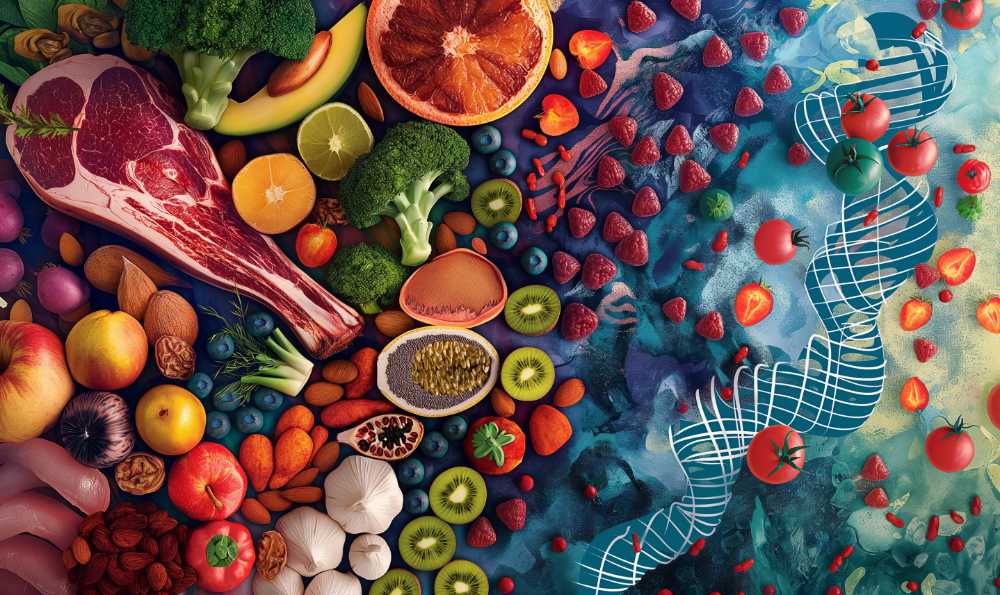Processed Foods: Corporations Profit, Consumers Suffer

Processed foods dominate supermarket shelves, fast-food chains, and household pantries, promising convenience, affordability, and irresistible taste. Yet, beneath their appealing packaging lies a cocktail of artificial additives, preservatives, and synthetic chemicals designed not for health but for corporate profit. These foods are engineered to last longer, look better, and trigger addictive cravings—keeping consumers hooked while maximizing industry revenue.
While food manufacturers claim these products are safe, mounting scientific evidence exposes their devastating health effects. From cancer-causing preservatives to sugar-laden formulations that fuel diabetes and obesity, processed foods are a primary driver of modern disease. Meanwhile, multinational corporations continue to flood the market with chemically modified products, using deceptive marketing to disguise their harmful impact.
What are processed foods?
Processed foods are industrially manufactured products that have been chemically altered to enhance flavor, extend shelf life, and increase consumer appeal. These foods undergo extensive modifications, often stripping away beneficial nutrients while adding synthetic ingredients that mimic natural flavors and textures. The rise of processed foods has led to a global shift in dietary habits, with many people consuming pre-packaged meals, snacks, and beverages instead of whole, unprocessed foods (Michael Moss, Salt Sugar Fat).
Not just fast food: how “healthy” foods are also processed
While highly processed items like fast food, cookies, and sodas are widely recognized as unhealthy, many seemingly “healthy” foods also fall into the processed category. Supermarket staples such as bread, breakfast cereals, dairy products, and even some vegetables undergo industrial processing that alters their nutritional profile. Pre-packaged whole wheat bread, for example, is often filled with preservatives, emulsifiers, and added sugars to improve texture and prolong shelf life. Many cheeses and dairy products contain artificial thickeners, stabilizers, and synthetic vitamins, making them far from their natural, nutrient-rich origins.
Even vegetables can be processed. Canned tomatoes, frozen spinach, and pre-cut salad mixes are often treated with preservatives or gas-flushed packaging to maintain freshness. While these foods may still retain some nutritional value, their processing introduces synthetic chemicals that may disrupt digestion and hormone balance.
The hidden additives in processed foods
Some level of processing is necessary for safety—such as pasteurization of milk to kill harmful bacteria or freezing vegetables to prevent spoilage. However, the problem arises when food manufacturers heavily modify products with artificial substances to enhance taste, texture, and longevity. These include:
- Artificial colorings (Red 40, Yellow 5, and Blue 1) that make food visually appealing but have been linked to hyperactivity and cancer.
- Preservatives (sodium benzoate, BHA, and BHT) that prevent spoilage but can damage DNA and disrupt hormones.
- Flavor enhancers (monosodium glutamate, or MSG) that make processed foods more addictive but may cause neurological issues.
- Emulsifiers and stabilizers (carrageenan, polysorbates) that improve texture but harm gut health and cause inflammation.
These substances are not added to benefit consumers—they serve corporate interests by making food more marketable, cheaper to produce, and longer-lasting. While these modifications make processed foods convenient and profitable, they come at a devastating cost to human health.
Who benefits from processed foods?
Longer shelf life means higher profits
Food manufacturers prioritize profit over nutrition. By using chemical preservatives, they extend the lifespan of their products, reducing waste and maximizing revenue. Unlike fresh foods, which spoil quickly, processed foods can sit on store shelves for months or even years. This allows corporations to store products in bulk, ship them globally, and maintain a steady supply with minimal financial risk (Marion Nestle, Food Politics).
Cheap ingredients increase corporate margins
Rather than using high-quality, natural ingredients, multinational corporations replace them with inexpensive, synthetic substitutes. Instead of real cheese, many snack foods contain “cheese flavoring.” Instead of natural sugar, they use high-fructose corn syrup, which is cheaper but significantly more harmful to metabolic health. Hydrogenated oils replace traditional fats, and chemical thickeners stand in for real dairy. Every artificial ingredient allows companies to cut costs and increase their bottom line, even at the expense of public health (Bee Wilson, Swindled).
Addictive properties create lifelong customers
Processed foods are scientifically engineered to hijack the brain’s reward system. Food corporations employ teams of chemists and psychologists to design products that trigger pleasure responses, ensuring that consumers crave them repeatedly. This phenomenon, known as the “bliss point,” occurs when foods contain just the right balance of sugar, fat, and salt to make them irresistible (Robert Lustig, Fat Chance). Over time, these foods alter brain chemistry, leading to compulsive overeating and addiction-like behavior, similar to that caused by drugs.
Manipulation and control
Manipulative marketing deceives consumers
Food companies invest billions in advertising to mislead consumers. Buzzwords like “all-natural,” “low-fat,” and “heart-healthy” create the illusion that processed foods are nutritious. Fortified cereals, for example, are often marketed as a good source of vitamins, despite being loaded with refined sugars and artificial additives. Many “diet” and “low-calorie” products contain artificial sweeteners, which disrupt metabolism and increase cravings. This deceptive marketing exploits consumer trust while keeping them hooked on unhealthy products (Melanie Warner, Pandora’s Lunchbox).
Industrial food dependency secures market control
As processed foods dominate global markets, people become increasingly dependent on industrial food production. Traditional home-cooked meals are replaced by ready-made products, reducing dietary diversity and eliminating the cultural significance of food preparation. Global food corporations shape consumer habits to secure long-term control over the food supply, making it difficult for individuals to break free from processed food dependency (Raj Patel, Stuffed and Starved). The consequences are severe, leading to widespread health problems, a loss of food sovereignty, and the erosion of traditional diets.
The devastating effects of processed foods on health
Increased cancer risk
Many additives and preservatives used in processed foods have been directly linked to cancer. Nitrates and nitrites, common in processed meats, transform into carcinogenic nitrosamines when exposed to high temperatures. The International Agency for Research on Cancer (IARC) classifies processed meats as a Group 1 carcinogen, placing them in the same category as tobacco (Kristina Rother, National Institutes of Health).
Artificial food colorings, such as Red 40 and Yellow 5, are widely used in processed foods despite studies showing their potential to damage DNA and promote tumor growth. These chemicals increase oxidative stress, disrupt cell function, and have been linked to an increased risk of leukemia and other cancers (Joseph Mercola, The Truth About Cancer).
Cardiovascular disease and high blood pressure
Processed foods are packed with trans fats, excess sodium, and refined sugars—all of which contribute to cardiovascular disease. Trans fats increase LDL (“bad”) cholesterol while lowering HDL (“good”) cholesterol, leading to clogged arteries and an increased risk of heart attacks and strokes. Despite efforts to ban them in some countries, they remain prevalent in many processed snacks, fast foods, and baked goods (Dariush Mozaffarian, Food and Nutrition).
Sodium, another major culprit, is used excessively in processed foods to enhance flavor and preserve freshness. More than 70% of the sodium in the average diet comes from processed foods. This excessive intake leads to high blood pressure, increasing the risk of stroke, kidney disease, and cardiovascular complications (American Heart Association).
Obesity and type 2 diabetes
Highly processed foods are engineered to be calorie-dense but nutritionally empty. They are loaded with refined sugars and artificial sweeteners that spike blood sugar levels, causing insulin resistance and promoting weight gain. The global obesity epidemic is directly linked to the rise of processed food consumption, with rates of type 2 diabetes soaring in recent decades (David Ludwig, Always Hungry?).
Artificial sweeteners, often marketed as a healthier alternative to sugar, have been found to alter gut bacteria and increase glucose intolerance. They disrupt hormonal balance, leading to increased hunger and fat storage. Diet sodas and sugar-free products contribute to metabolic dysfunction, making weight loss even more difficult (Eran Elinav, Nature).
Hormonal disruption and reproductive issues
Many chemicals in processed foods interfere with the body’s hormonal system. Endocrine disruptors such as BPA and phthalates, which leach from food packaging, mimic estrogen and interfere with reproductive health. These chemicals have been linked to declining sperm counts, infertility, and developmental disorders in children (Shanna Swan, Count Down). Exposure to these toxins contributes to hormonal imbalances, increasing the risk of thyroid disorders and early puberty (Niels Skakkebaek, University of Copenhagen).
Mental health disorders and cognitive decline
Processed foods have a direct impact on brain health. Diets high in refined sugars and trans fats have been linked to increased rates of depression and anxiety. The gut-brain connection plays a crucial role in mental health, and artificial additives disrupt gut bacteria, impairing neurotransmitter production (Felice Jacka, Brain Changer).
Long-term consumption of processed foods is also associated with cognitive decline. People who consume large amounts of processed foods have a significantly higher risk of developing Alzheimer’s disease. Neuroinflammation caused by trans fats and sugar damages brain cells, accelerating cognitive aging and memory loss (Martha Clare Morris, JAMA Neurology).
Conclusion: breaking free from processed food dependency
While multinational corporations thrive on selling addictive, chemically altered products, consumers face devastating health consequences. The global rise in obesity, diabetes, cancer, and mental health disorders is directly linked to the dominance of processed foods in modern diets.
The only way to combat this crisis is to reject industrialized food and return to whole, unprocessed ingredients. By eliminating artificial additives, preservatives, and refined sugars, people can protect their health and reclaim control over their food choices (Mark Hyman, Food: What the Heck Should I Eat?). Supporting local farmers, cooking fresh meals at home, and making informed purchasing decisions are crucial steps in breaking free from the processed food trap.


















